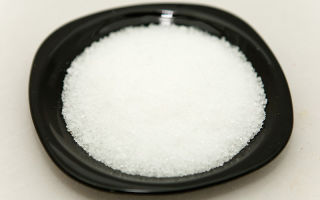Content
- 1 What is monosodium glutamate and what is it for
- 2 Methods for producing monosodium glutamate
- 3 What foods contain monosodium glutamate
- 4 Why is monosodium glutamate dangerous?
- 5 Is monosodium glutamate beneficial
- 6 Monosodium glutamate intake during pregnancy and breastfeeding
- 7 Monosodium glutamate and children
- 8 Is monosodium glutamate poisoning possible?
- 9 Myths about the dangers of sodium glutamate
- 10 How to reduce your intake of monosodium glutamate
- 11 Conclusion
The benefits and harms of monosodium glutamate is an extremely controversial issue that worries everyone who cares about their health. To answer it, you need to understand what a substance is and what are its properties.
What is monosodium glutamate and what is it for
Monosodium glutamate, or E 621, is a white substance with no odor. Monosodium glutamate contains only the sodium salt obtained from glutamic acid. By itself, it is completely tasteless, however, in combination with other products, it exhibits unique properties. Namely, it enhances the taste, more precisely, has an exciting effect on human receptors and makes you feel the sweet, sour, bitter or salty notes of familiar dishes much sharper.
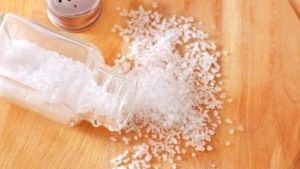
Methods for producing monosodium glutamate
A chemical used in the food industry is produced in several ways:
- acid hydrolysis of natural gluten or gluten;
- by converting glutamine into pyroglutamic acid and then into glutamic acid;
- using purely chemical processing of acrylonitrile compounds;
- microbiological method - the processing of carbohydrates into glutamic acid by means of special bacteria Corynebacterium glutamicum, and then - purification and crystallization of the resulting substance.
Today, the industry uses mainly the fourth method - microbiological. It allows you to get a natural substance without impurities and unnecessary isomers - the benefits from it are maximum.
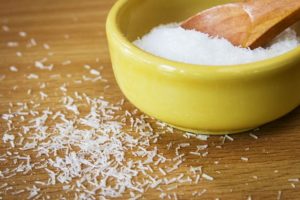
What foods contain monosodium glutamate
The food additive is represented not only by the synthetic compound E 621, which is deliberately used in the food industry to enhance taste. This component brings both benefits and harm. Glutamic acid is present in many foods and is itself free or bound when heat treatment is required for release.
In particular, natural glutamic acid can be found:
- in almost any meat and ham;
- in crayfish, mussels, shrimps and other seafood;
- in cheeses - parmesan and roquefort;
- in soy sauce;
- in mushrooms and peas;
- in walnuts;
- in tomato and grape juice;
- in corn and broccoli;
- in many other products.
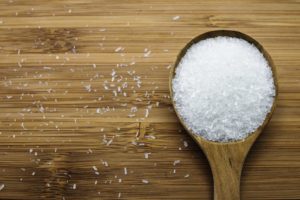
Of course, the use of monosodium glutamate in a synthetic form is widespread in the manufacture of convenience foods, snacks and desserts.The additive E 621, the properties of which are quite harmful, can be found in chocolate and sweets, crackers and chips, frozen foods, ice cream and drinks.
Why is monosodium glutamate dangerous?
Very often the properties of a substance are mentioned in a negative context - as frankly harmful to the body. What kind of harm can a food additive do to health:
- in large quantities, the properties of E 621 have a toxic effect, unnecessarily exciting and damaging the nervous system;
- an excess of a substance leads to the fact that a person forms a bad habit - food without amplifiers ceases to attract him. In turn, the use of food exclusively with the additive E 621 increases the risk of overdose;
- the flavor enhancer monosodium glutamate can lead to obesity. The fact is that food with a harmful additive does not saturate well and contributes to an increase in appetite, respectively, the risk of weight gain increases.
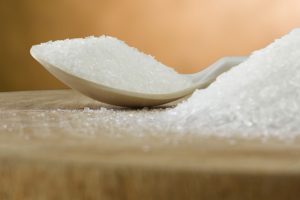
Is monosodium glutamate beneficial
The effect of the food additive E 621 on the body is twofold: despite the potential harm, it also has benefits. The beneficial effect is manifested in the fact that the substance:
- increases the overall tone of the body and helps to cope with anxiety conditions;
- improves bowel function, promoting faster digestion of food;
- helps with hypertension, since it does not increase blood pressure, unlike ordinary salt;
- is beneficial for gastritis with low acidity of the stomach;
- Eliminates the accumulation of ammonia compounds in the body, breaking them down and converting them into other, healthy salts.
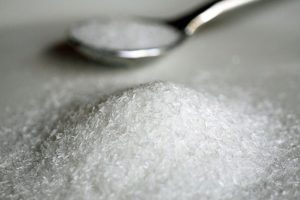
Monosodium glutamate intake during pregnancy and breastfeeding
During the period of gestation, only natural products with a natural content of glutamic acid can be left in the diet. It is strictly forbidden to consume meals with the additive E 621: there will be no benefit, the properties of the substance can harm the developing nervous system of the fetus.
The same applies to the use of the E 621 enhancer during lactation. Until the period of breastfeeding is over, you will have to forget about the supplement, otherwise the baby will be harmed.
Monosodium glutamate and children
Although the properties of a dietary supplement in small doses can be beneficial, it is strictly forbidden to introduce it into a child's diet until at least 3 years of age. The fact is that a flavor enhancer that is harmful in this case can contribute to the development of improper eating habits in a baby. He will simply get used to junk food with flavor enhancers and will begin to refuse healthy natural foods.

Is monosodium glutamate poisoning possible?
Since the dietary supplement has both benefits and harms, the question naturally arises: is an overdose of monosodium glutamate real at all?
Of course, theoretically, this is possible, but in practice, you should not be afraid of poisoning. To get a fatal dose for the body, you need to eat 16.5 g of pure harmful substance for each kilogram of your own weight. That is, more than 1 kg of flavor enhancer with a body weight of 65 kg.
Even without detailed calculations, it is obvious that no one person can consume as much monosodium glutamate in a limited period of time. Therefore, it is impossible to poison yourself with a substance in reality.
Myths about the dangers of sodium glutamate
If used carelessly, the supplement can harm the body. But at the same time, there are several myths regarding its danger, and they do not correspond to reality.
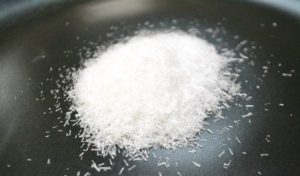
Addictive
If you constantly eat food with the harmful flavor enhancer E 621, then ordinary food will really start to seem bland. However, the formation of a real dependence is out of the question.It is no more difficult for a person to refuse the pleasant properties of the E 621 supplement than to reduce the amount of salt or sugar in the diet.
Those who are convinced of the dangers of the supplement often cite an experiment conducted on laboratory mice. During it, one rodent was given food with 20% sodium glutamate daily. As a result, he began to simply refuse normal food. But the argument is easily refuted by the fact that no one uses the additive in such huge dosages, and the minimum doses of the substance do not cause harm and do not cause dependence.
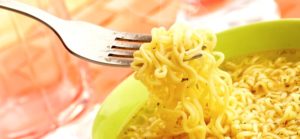
Causes allergies
If the body of a particular person reacts negatively to E 621 in the composition of some dishes, then, most likely, the harm lies in some other component. The fact is that in minimal volumes glutamic acid is produced by the body itself and, therefore, cannot be a harmful allergen.
Damages brain cells
Of course, the properties of the substance have an exciting effect on the nervous system, since E 621 is a so-called neurotransmitter. However, the supplement is not capable of causing serious harm to the psyche and even more so to the brain, either in adults or in children.
Monosodium glutamate, which enters the body of an adult with food, is completely processed by the intestines, almost does not enter the bloodstream, and therefore into the brain. In the same way, the properties of the substance cannot penetrate the placenta of a pregnant woman and harm the fetus. Although it is still not recommended for pregnant women to consume food with E 621, it will not be beneficial.
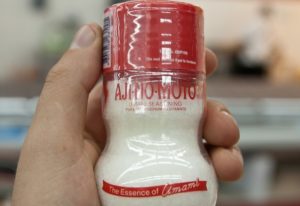
Contained in baby food
In infant formula, monosodium glutamate can be present in only one form - as glutamic acid, which inevitably enters into the composition of any protein compounds and is beneficial. But not a single manufacturer will deliberately add the harmful substance E 621 to infant formula - monosodium glutamate is prohibited in baby food. Moreover, it is simply not economically viable. A brand offering low-quality infant formula that is harmful to infant health will not stay in the market in a highly competitive market.
How to reduce your intake of monosodium glutamate
It is impossible and unnecessary to remove glutamic acid from food, especially protein, since it also has benefits. But it is quite possible to reduce the use of the harmful synthetic additive E 621 - this will have a positive effect on health. To abandon a harmful flavor enhancer, you need to understand that most often it is present:
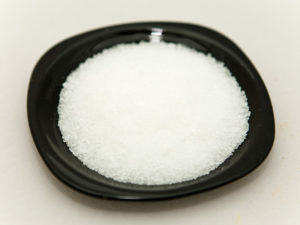
- in frozen semi-finished products;
- in any fast food;
- in cheap snacks - chips and crackers;
- in many sweets and desserts;
- in ready-made sets of spices and seasonings.
While natural products without harmful additives may cost a little more and take longer to process, they will have more health benefits.
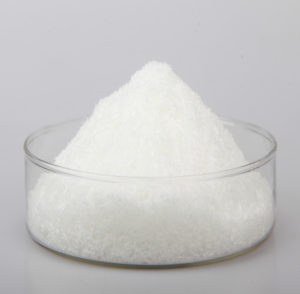
Conclusion
The benefits and harms of monosodium glutamate balance each other - it all depends on the dosage of the substance. Many myths about the dangerous properties of the product do not correspond to reality, but the E 621 supplement still cannot be abused.

